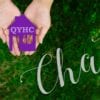As a white person descended from the English settlers to Australia in the 19th Century, my first thought is I have nothing to offer to a NAIDOC week conversation, other than to listen and try to learn. But of course that is only partly true. As a human, I can stand up for justice, because justice must be blind to colour, race or creed; as an Australian, I can challenge my conscious for the unconscious bias we apparently all have and then politely point out the same when I see it in my family and friends; as a reader and listener, I can gain knowledge that I can then share with my friends and family so I can pique their interest in the cause.
Why should I do this? I should do this because I want my society to be better than one that allows deaths in custody to go on year after year while proposed solutions have not been implemented, where inherent racism goes on unchecked in little ways every day, and where ignorance of our Indigenous People’s history and the trauma of colonialization remains the norm.
As a member of Noonga Reconciliation Group, I am slowly learning about issues facing our Indigenous communities from those who have been active in this area for decades, if not a lifetime. As a 60 year old I have a lot to catch up on. In my formal education I learnt about the resourcefulness and resilience of the white explorers and settlers but no information was provided on the history or stories of Indigenous Australians. This was the same for my children, now in their 30s. But it is changing for my grandchildren. In their early years of schooling they are surrounded by Aboriginal and Torres Strait Islander art in their classrooms, they start the day with the word for welcome in the local language, and they are learning a different story around colonisation. For them, respect of Aboriginal and Torres Strait Islander cultures is going to be the norm, not a political choice.
So, as a grandmother, I am grateful to all those activists who fought and struggled to have Aboriginal and Torres Strait Islander content introduced into the curriculum. You will see change from the ground up but it will be slow, so slow.
So, channelling the strength and influence of First Nations grandparents, I call on us, non-indigenous grandmothers and grandfather, and all those that want a better future for our children, to hasten the process of change. As the grandparents, parents, aunts & uncles, teachers, youth workers, policy makers and leaders, we have to STEP IN and educate ourselves on the incredible 60,000 year history of First Nations Peoples on this continent and the shocking impacts of first, colonisation, and later unpaid labour, stolen generations, deaths in custody and generational disadvantage from settlement policies. If we use our book clubs and library memberships to read books like Bruce Pascoe’s Dark Emu we will be awed by the sophistication and resourcefulness of the original inhabitants; if we read the wonderful Aunty Ruth Hegarty’s books on life under the rule of government policy at Cherbourg we will gain an understanding of the tactics used to break up families and disassociate people from their traditional knowledge and then we will have a basis on which to educate ourselves on current issues with the words of Stan Grant, Marcia Langton and others.
If we do this we will be able to keep up with the change young people, our next generation, will bring about to change our society, maybe even hasten it a bit; and most importantly we will develop a pride in Australia that is based on understanding and respect, not of fear and dominance.
Trish Quirk
NRG Secretary
To find out more about NRG visit: https://noongarg.org.au/ or https://www.facebook.com/noongareconciliationgroup/
To find out more about NAIDOC Week: https://www.naidoc.org.au/about/naidoc-week

